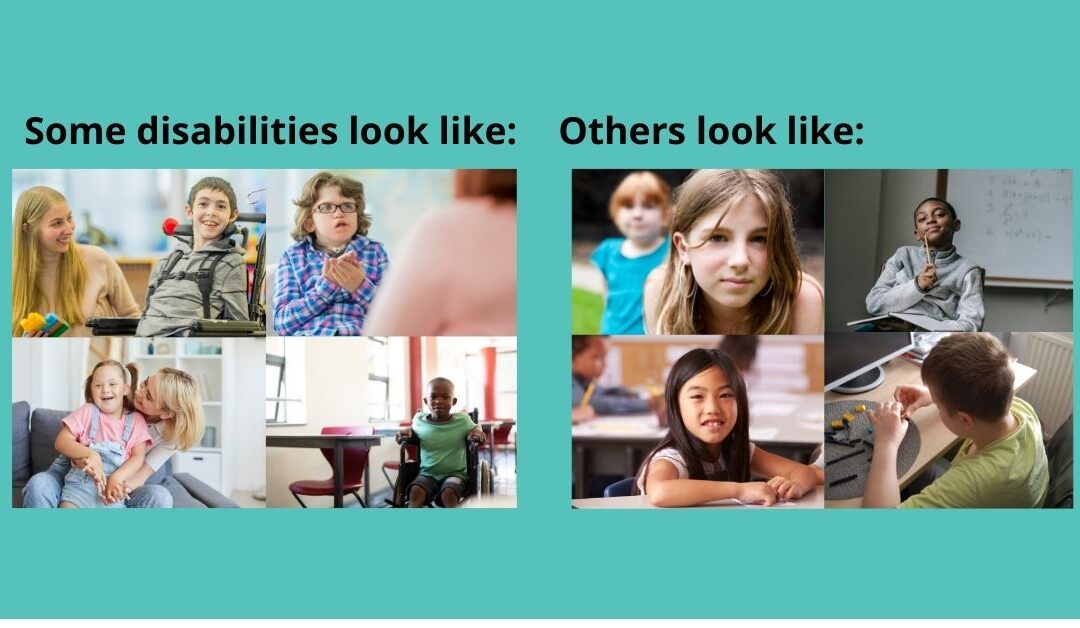As parents of autistic/ADHD children, I think almost all of us have been in the situation where we’ve had to explain to others that our children have these conditions. Then sometimes comes the inevitable. “Well, your child doesn’t look autistic” (or disabled, atypical or whatever the description is that they use). Disabilities and special needs come in many forms – some are physically noticeable and others are not. Yet, the challenges for both are real. So how can we as parents better explain to others about autism and ADHD and that our children have an invisible disability?
My Experience

My son J was diagnosed with Asperger’s Syndrome at age 4 and then ADHD at age 6. When he was younger, most people noticed his high levels of hyperactivity, impulsiveness, meltdowns (especially at playgrounds and other public areas when he was not ready to go home, experience sensory overwhelm, etc.), directing other children in play, and the social awkwardness between him and his playmates.
As a teenager, others may now notice less but wonder why he always must steer the conversation back to music. He also seems to have less control of his emotions than others, and can struggle in certain social situations. If they know others who have autism or ADHD, they may recognize these challenges. If not, they may pass it off as just being a teenager or only his personality. That is okay. However, it worries me that people may think negatively of him without understanding the why behind his actions. When I can explain the why, their understanding and perception changes. It can be important that they know he has autism and ADHD, which are each an invisible disability.
Explaining autism and ADHD as invisible disabilities
In fleeting encounters at the grocery store or other places, you don’t really have time to engage with another person about your child. That is okay, and you need to not worry about how others perceive your parenting. If they are judging you, then really it more about them and less about you.
However, if I’ve had time to talk to someone about my son J, I look at it as a wonderful opportunity to educate them about autism and ADHD. Not only will it help them understand my son better in the time they are around him, then it also can open their eyes to the potential for others to have an invisible disability too.

1. I explain that my son has autism and ADHD. I also point out that autism is a spectrum, and that autistic children and adults can be at different points of their capabilities and behaviors. They may be high functioning in one area, but they may really struggle with other aspects of life. Really, it’s pretty similar to all of us as humans. We all have our strengths and weaknesses; the areas of life where we excel and others where it’s a real struggle.
2. I share some basic facts about autism and ADHD with them. I also share my own perspective that they have brought some positives along with negatives into our life as a family.
3. I explain the why behind a specific behavior that my child may be exhibiting at the time. It may be a good or not so good behavior, but helping someone better understand the “why” behind it can go a long way in educating others.
4. I invite them to find out more about autism and ADHD by recommending credible sources of information. They may or may not ever look it up, but you never know when their child may make a new friend or have a classmate who has autism and/or ADHD. They might want to know more then. CHADD has many fact sheets available about ADHD, and the Centers for Disease Control and Prevention has good basic information about autism to share with others.
When you have the opportunity to talk to someone about autism and/or ADHD, what are the points you like to make? Leave a comment so that we can share and encourage each other along this journey.








